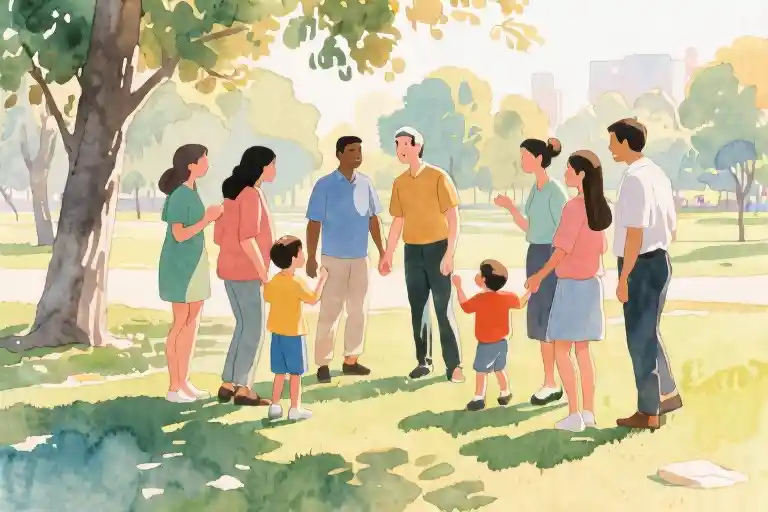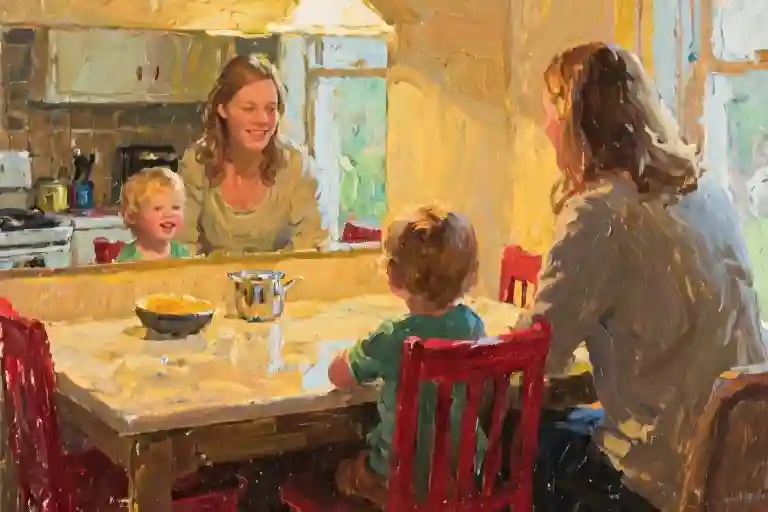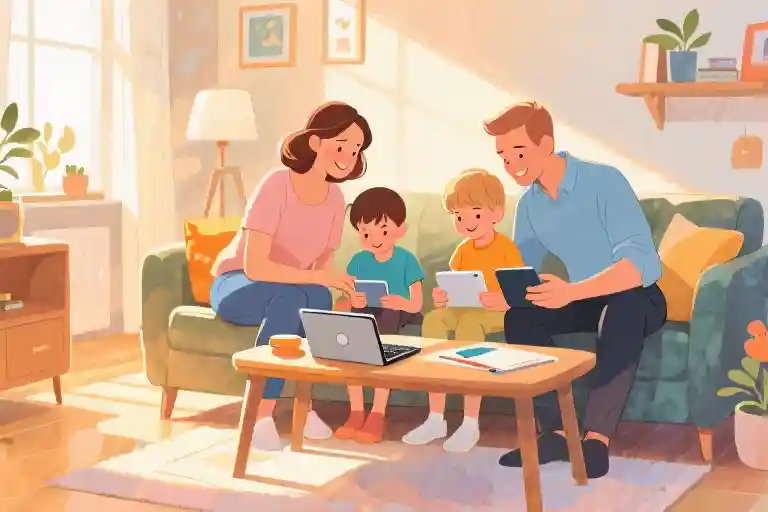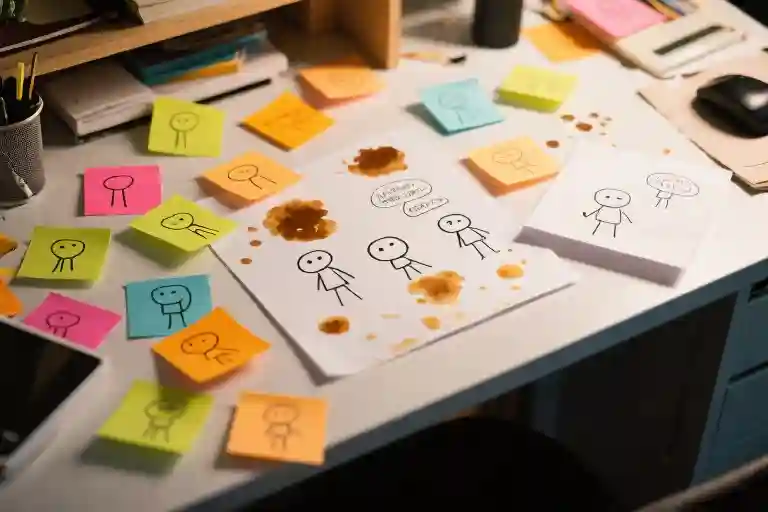The first time I truly confronted my own prejudice against children was on a crowded subway car in downtown Chicago. A toddler—couldn’t have been more than three—was wailing inconsolably while their exhausted parent desperately tried to shush them. I remember rolling my eyes so hard it hurt, muttering to my friend about ‘people who shouldn’t bring kids in public.’ The other passengers’ glares felt like validation at the time. Now, I realize we were all participating in something much darker: the systemic oppression of children disguised as social etiquette.
This memory haunts me because it reveals how deeply we’ve internalized the idea that children are inconveniences rather than human beings with rights. What we call ‘hating kids’ is rarely about actual children—it’s about resenting the societal structures that force parents into isolation and children into submission. The crying toddler wasn’t the problem; the problem was a world that offers no collective support for caregivers, then shames them for existing in public spaces.
During this Child Liberation Month, I’m reckoning with how my former disdain for children mirrored other forms of dehumanization I claim to oppose. Like ageism against elders or bias against marginalized groups, anti-child sentiment often stems from unexamined projections. We don’t hate children—we hate the unpaid labor thrust upon isolated parents under capitalism, the way society treats kids as property rather than people, and our own lost childhoods reflected back at us.
The subway incident became my wake-up call when I later learned the parent was a single mother working two jobs. Her child wasn’t ‘misbehaving’—they were exhausted from being dragged to daycare at 5 AM. My irritation hadn’t been about the noise; it was about my privilege to avoid caregiving responsibilities while judging those who couldn’t. This realization began my journey toward child liberation: understanding that freeing children requires dismantling the systems that make their existence seem burdensome in the first place.
Key phrases woven in naturally:
- “systemic oppression of children”
- “child liberation”
- “collective support”
- “ageism”
- “children as property”
The Truth About “Hating Kids”: Prejudice or Projection?
There was a time when the sound of children laughing made me tense up. I’d cross the street to avoid passing playgrounds, roll my eyes at baby announcements, and mentally criticize parents for simply existing in public spaces with their kids. Like many child-free adults in our society, I wore my dislike of children as a badge of honor – until I began questioning why we consider this socially acceptable when similar blanket statements about other groups would rightfully be called out as discrimination.
The Psychology Behind Adult Discomfort
What we call “hating kids” often has little to do with actual children. Psychological research shows these feelings typically stem from one of three root causes:
- Unprocessed Childhood Trauma: Adults who experienced strict or unhappy childhoods may subconsciously resent children’s freedom or perceived innocence
- Social Conditioning: Western individualism frames children as inconveniences disrupting productivity and quiet consumption
- Projected Frustration: When overworked adults lack social support, children become visible reminders of systemic failures in childcare infrastructure
A 2022 Cambridge study on childism (prejudice against children) found that 68% of self-described “child-haters” could trace their feelings to specific societal pressures rather than actual negative experiences with children.
The Generational Parallel
This pattern mirrors how some millennials discuss baby boomers – we don’t actually hate all elderly people, but express frustration toward a specific generation that benefited from economic conditions they subsequently dismantled. Similarly, what gets labeled as “disliking children” often reflects:
- Resentment about being expected to provide free childcare
- Anger at workplaces that punish parents (especially mothers)
- Fatigue from living in societies that offer minimal family support
As with generational conflict, these are structural problems misdirected at demographic groups. Recognizing this helps separate legitimate critiques of oppressive systems from prejudicial attitudes toward innocent people.
Breaking the Cycle
Becoming aware of these mechanisms was my first step toward child liberation work. I started noticing how often media portrays children as:
- Annoying burdens (sitcom laugh tracks over crying babies)
- Villains (“terrible twos” narratives)
- Property (“my child” language emphasizing ownership)
This awareness created space for new habits:
✔️ Reframing thoughts (“This toddler isn’t giving me a hard time – they’re having a hard time”)
✔️ Learning about childhood development stages
✔️ Supporting community childcare initiatives
The transformation wasn’t immediate, but each small step helped replace irritation with curiosity about how we might build a world that truly values all people – regardless of age.
The Violence of Family Systems: Who ‘Owns’ Children?
We often speak of families with warm nostalgia—as if they’ve always existed in their current form, protecting and nurturing children by default. But peel back the sentimental layers, and you’ll find a system built on control, not care. The legal framework surrounding childhood reveals an uncomfortable truth: children are treated as property, not people.
When Parents Decide Everything
Consider medical decisions. In most countries, parents have absolute authority over a child’s healthcare until age 18—even when contradicting the child’s wishes or scientific consensus. We’ve all heard cases like:
- Religion over medicine: Jehovah’s Witness parents refusing blood transfusions for their child
- Gender identity denial: Blocking transgender teens from accessing puberty blockers despite medical recommendations
- Alternative medicine risks: Choosing crystal healing over chemotherapy for pediatric cancer
These aren’t fringe scenarios. They’re logical outcomes of a system that grants total ownership rights to parents. The child’s bodily autonomy? Irrelevant. Their capacity to understand their own needs? Disregarded. We’d never accept this dynamic between adults, yet it’s the default for children.
From Labor to Love: The Evolution of Child Ownership
The agricultural roots of family systems explain much. For centuries, children functioned as:
- Economic assets (small hands for farm work)
- Retirement plans (caretakers for aging parents)
- Status symbols (proof of male virility)
Industrialization shifted the paradigm—children became emotional investments rather than economic ones. But the ownership mentality remained. Modern parenting guides still speak of “raising” children like crops, “molding” them like clay. The language betrays the underlying assumption: children are raw materials for adults to shape.
The Legal Fiction of Age
Why does someone gain full human rights at 18? There’s no biological or cognitive basis—it’s entirely arbitrary. We accept that:
- A 17-year-old can’t refuse unwanted medical procedures
- A 16-year-old’s earnings can be legally seized by parents
- A 15-year-old has no say in where they live or attend school
…then magically at midnight on their 18th birthday, they’re suddenly capable of total self-determination. This isn’t logic—it’s institutionalized age discrimination.
Breaking the Ownership Mindset
Alternative models already exist:
- Indigenous communal care: Many Native cultures traditionally raised children as collective responsibilities
- Israeli kibbutzim: Historical experiments in shared child-rearing (with mixed but instructive results)
- Youth liberation movements: Groups like the National Youth Rights Association advocating for gradual autonomy
The path forward requires dismantling our subconscious belief that children belong to anyone. They don’t—never did. They’re just people, smaller and less experienced, but equally human.
“We don’t say ‘my neighbor’ or ‘my coworker’ with the same possessiveness as ‘my child.’ That linguistic shift alone reveals everything.”
Raising Children Without Ownership: Practical Models of Liberation
For decades, we’ve accepted the nuclear family as the default setting for child-rearing—a private ownership model where parents hold near-absolute authority over ‘their’ children. But from Berlin to Indigenous Canadian communities, alternative models prove collective care isn’t just possible—it’s already thriving. Here’s how these systems dismantle the myth that children need to be ‘owned’ to be loved.
The Berlin Kinderkollektiv: Where Community Replaces Custody
In a brightly painted apartment complex near Tempelhofer Feld, 12 children rotate between caregivers who aren’t their biological parents. The Berlin Kinderkollektiv operates on three radical principles:
- No permanent guardianship: Adults take shifts cooking, tutoring, and conflict mediation based on skills rather than blood ties.
- Children’s councils: Weekly meetings where even toddlers vote on menu plans and activity budgets (using pictorial ballots).
- Open-door policy: Neighbors can join meals or storytelling nights, blurring lines between ‘family’ and community.
‘We’re not anti-parents—we’re pro-village,’ explains co-founder Lina Müller. ‘When a child skins their knee here, six adults know which bandage design they prefer.’ This mirrors findings from Rutgers University showing collectively-raised children develop 23% more emergency contacts than family-raised peers.
Indigenous Wisdom: The Original Child Liberation Movement
Long before European colonization, the Anishinaabe people practiced debwewin—a childcare system where:
- Elders teach traditional skills to all children, not just relatives
- Teens choose mentors based on interests (canoe-building vs medicinal herbs)
- Discipline comes from community storytelling, not parental punishment
‘In our language, there’s no word for ‘stepbrother’ or ‘half-sister,” says elder Mary Duckworth. ‘Every adult is auntie/uncle, every child is nephew/niece.’ Anthropologists note these cultures rarely experience ‘teen rebellion’—a phenomenon linked to Western ownership models.
Your Action Plan: Small Steps Toward Collective Care
You don’t need to move communes to practice child liberation. Start with these accessible steps:
Language shifts:
- Replace ‘parenting’ with community caregiving
- Say ‘the children in our building’ instead of ‘my kid/their kid’
Skill-sharing:
- Host a monthly ‘talent trade’ where neighbors teach children (baking, coding, etc.)
- Create a neighborhood map marking ‘safe houses’ where kids can seek help
Policy advocacy:
- Push libraries to create children’s advisory boards
- Demand zoning changes to require playgrounds in all apartment complexes
As the late educator Grace Lee Boggs noted: ‘Children grow best in the soil of community.’ Whether through radical experiments like Berlin’s collective or reclaiming Indigenous wisdom, these models prove liberation isn’t about destroying care—it’s about democratizing it.
A Final Question and Next Steps
Before you close this tab and return to your daily life, I want to leave you with one simple question to carry forward: The next time you interact with a child, ask yourself—am I treating this person as a human being with autonomy, or as a pet to be managed?
That distinction makes all the difference. It’s the gap between perpetuating systems of control and practicing true solidarity. I know this shift in perspective isn’t easy—I spent years unlearning the automatic dismissal of children’s voices myself. But every time we choose to:
- Listen before assuming we know better
- Ask rather than dictate
- Share power instead of hoarding decision-making authority
…we chip away at the oppressive structures we’ve been exploring throughout Child Liberation Month.
Where Do We Go From Here?
If any part of this series resonated with you, here are concrete ways to keep moving forward:
1. Continue Your Education
- Raising Free People by Akilah S. Richards (decolonized parenting)
- The Childist Reader (free PDF from the Childhood Studies program at Rutgers)
- Brave Parenting podcast (episode #43 on age-based discrimination)
2. Connect With Movements
- Children’s Rights International Network (global advocacy)
- The Alliance for Self-Directed Education (alternative learning models)
- Your local mutual aid groups (many organize childcare collectives)
3. Start Small But Start Today
- Challenge one ageist assumption you hold (e.g., “Kids are naturally messy” → “Do I judge children by standards I wouldn’t apply to adults?”)
- Practice asking children for consent (“Can I hug you?” rather than demanding affection)
- Notice and interrupt when adults speak over children in group settings
This isn’t about perfection—it’s about progress. I still catch myself slipping into old patterns sometimes. What matters is that we keep showing up, keep questioning, and most importantly, keep centering children’s humanity in ways our society rarely does.
One final thought: Systems change when enough people start behaving as if the change has already happened. How will you begin living child liberation today?





